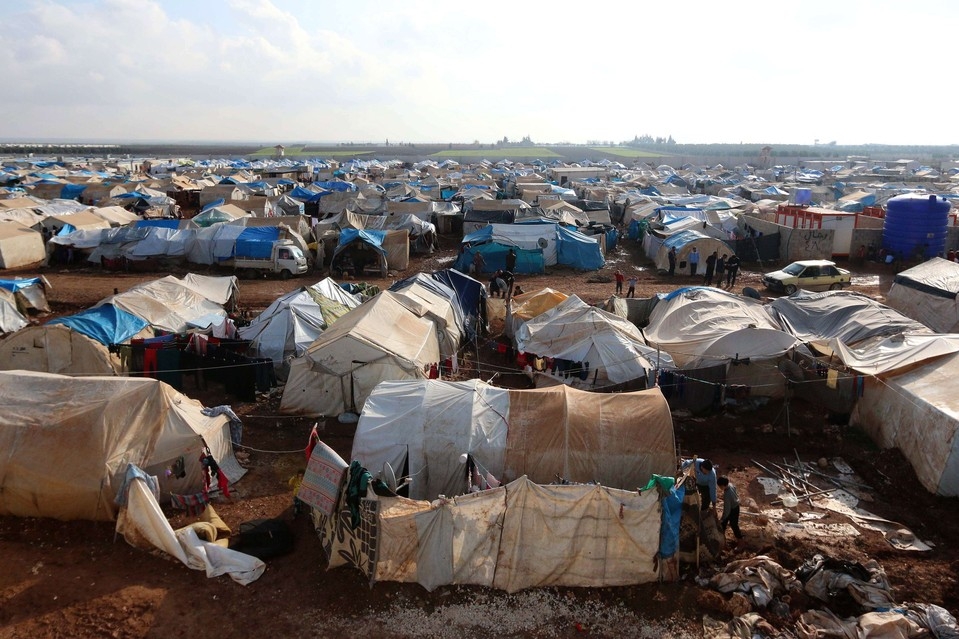
29 Dec 2014
The World Food Programme (WFP) is to reinstate its food voucher scheme to more than 1.7 million Syrian refugees in Jordan, Lebanon, Turkey, Iraq and Egypt after an emergency appeal for funding raised $88m (£56m) in days. The announcement came just over a week after the WFP said a $64m shortfall had forced it to suspend the programme and warned that the lack of vouchers would leave hundreds of thousands of Syrian refugees facing a long and hungry winter. The organisation said a “massive expression of support” from the public, the private sector and donor countries meant that the recipients would have their electronic vouchers uploaded with an average of $30 per family member from next week. “This outpouring of support in such a short time is unprecedented,” said the WFP’s executive director, Ertharin Cousin. “We’re especially grateful to the many individual members of the public who reached into their own pockets to send whatever they could to help Syrian refugees who have lost everything. They showed that even as little as a dollar can make a difference.” Since the war began in March 2011, the WFP has brought food to millions of Syrians inside the country, and has used the voucher programme – which allows refugees to buy food in local shops – to inject about $800m (£500m) into the economies of the countries hosting them. News of the successful appeal came as Unicef warned that its efforts to assist millions of children affected by conflicts in Syria and Iraq were being hampered by a regional funding shortfall of about 42% – or $324m. A year ago, the agency was trying to help 5.6 million children in the two countries and in surrounding host nations Jordan, Lebanon, Turkey and Egypt; this year, the figure has risen to 7 million. “Winter is closing in around the region and we have a huge increase in the number of children who are at risk in one way or another,” said Unicef’s Middle East spokesman, Simon Ingram. “That’s an enormous number of children who are really at the mercy of the elements.” Ingram said Unicef’s ability to help was being affected by varying funding levels: although its Jordan appeal is 73% funded, its Syria appeal has received only 52% of the money it needs. If the funding shortage persisted, he said, more than 200,000 children are expected to go without warm clothes this winter. “Although the cold is the obvious thing, when it rains, it’s wet and – with the best will in the world – these tarpaulins and tents and even containers do not withstand the worst that the weather can throw at them,” said Ingram. “You’ve also got to remember that about 85% of the refugees around the region are not living in camps that have been, to some extent, proofed against the weather; they’re living in host communities, crammed into rooms where heating is most likely unavailable.” While things were better in some of the larger and better organised refugee camps. he added, Unicef is particularly concerned about children who were displaced over the summer in northern Iraq and forced to flee to mountainous Kurdish areas. “Many of them are still camping out in building sites and open spaces with very little to protect them,” said Ingram. Equally worrying, he said, was the rising number of children who were having to work to help support their families. “People are much more desperate because their savings have run down and prices are rising,” he said. “Not only are families miserable and cold, they’re also more likely to push their children out to earn more money and that’s a rising trend. We see it particularly in Lebanon and Turkey, but it applies right across the board.” On Monday, the UN launched a record appeal for $16.4bn (£10.5bn) to help almost 60 million people in 22 countries next year, warning that the proliferation of crises in Syria, Iraq, Central African Republic and South Sudan was stretching humanitarian resources to their limits. Valerie Amos, the outgoing UN under secretary general for humanitarian affairs and emergency relief coordinator, described the situation in Syria as a “stain on the international community”. The UN said nearly half of the total amount sought was needed to help alleviate the Syrian crisis, with $2.8bn intended to help 12.2 million inside the country and a further $4.4bn needed to help 6 million Syrian refugees in Iraq, Jordan, Turkey, Lebanon and Egypt. “This is not business as usual in the humanitarian world,” said António Guterres, the UN high commissioner for refugees. “Today’s needs are at unprecedented levels, and without more support there simply is no way to respond to the humanitarian situations we’re seeing in region after region and in conflict after conflict.”

 عربي
عربي